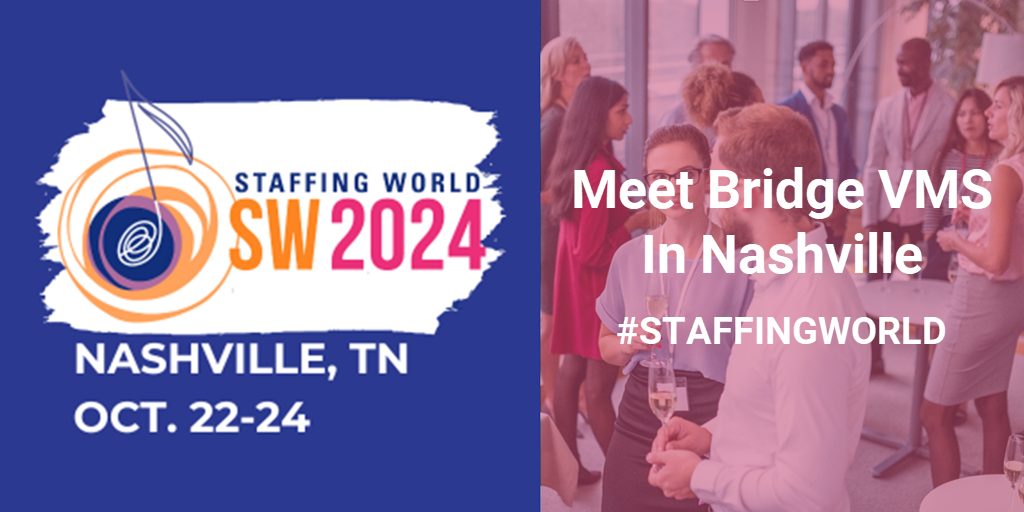Enhance Efficiency with VMS: Contingent Labor Services
Discover how vendor management systems (VMS) can optimize your contingent labor services and enhance your business's efficiency.
2 min read
 Matthew Cook
:
Jul 06, 2023
Matthew Cook
:
Jul 06, 2023

In today's dynamic business landscape, companies face ever-changing demands and challenges that require adaptable and agile workforce solutions. One such solution gaining popularity is contingent workforce staffing. This approach enables organizations to access a flexible pool of talent, allowing them to respond swiftly to market fluctuations, scale operations efficiently, and drive innovation. In this blog post, we'll explore the concept of contingent workforce staffing and how it can benefit businesses in the pursuit of success and growth .
Contingent workforce staffing refers to the practice of hiring temporary or contract workers to fulfill specific roles within an organization. These workers, also known as contingent workers, can be independent contractors, freelancers, consultants, or temporary employees supplied through staffing agencies. Unlike traditional full-time employees, contingent workers are engaged for a predetermined duration or until the completion of a specific project.
In an ever-evolving business environment, being able to adapt quickly to changing circumstances is crucial. Contingent workers offer the flexibility to scale up or down operations according to workload fluctuations, seasonal demands, or project-specific requirements. This agility allows organizations to optimize their workforce and maintain optimal staffing levels at all times.
Hiring contingent workers can be a cost-effective solution compared to recruiting full-time employees. Companies can avoid expenses such as benefits, training, and overhead costs associated with permanent staff. Contingent workers are often paid on an hourly or project basis, providing a more flexible and predictable cost structure.
Contingent workforce staffing enables businesses to tap into a vast talent pool with diverse skill sets. This approach allows organizations to bring in specialists for specific projects or areas of expertise without the need for long-term commitments. Accessing specialized skills can enhance the quality of work, accelerate project timelines, and drive innovation within the company.
Recruiting, onboarding, and training new employees can be time-consuming and resource-intensive. Leveraging contingent workforce staffing alleviates this burden by outsourcing the hiring process to staffing agencies or relying on established networks of freelancers. Organizations can focus on core business operations while leaving the task of finding qualified talent to professionals who specialize in the contingent workforce.
As the employment landscape becomes increasingly regulated, contingent workforce staffing can help organizations mitigate legal and compliance risks. Staffing agencies often take on responsibilities such as payroll, benefits administration, tax compliance, and worker classification, reducing the employer's burden and ensuring adherence to relevant laws and regulations.
The contingent workforce staffing model offers businesses a strategic approach to managing their workforce and staying agile in a rapidly changing marketplace. By leveraging the flexibility, cost efficiency, access to specialized skills, reduced hiring burden, and risk mitigation that contingent workers bring, organizations can optimize their operations, adapt to market demands, and foster innovation.
BridgeVMS, a leading provider of contingent workforce management solutions, understands the evolving needs of businesses in today's competitive landscape. With their comprehensive platform and expertise in managing the contingent workforce, they empower organizations to embrace flexibility and maximize the potential of their workforce. Whether you need short-term project-based staffing or a long-term contingent workforce strategy, BridgeVMS is here to support your business in achieving success and growth.

Discover how vendor management systems (VMS) can optimize your contingent labor services and enhance your business's efficiency.

It’s that time of year again—Staffing World 2024 is just around the corner, and this month’s event promises to be bigger, bolder, and more exciting...

Businesses are under increasing pressure to stay flexible and nimble at a time of quick technical breakthroughs, shifting market dynamics, and...